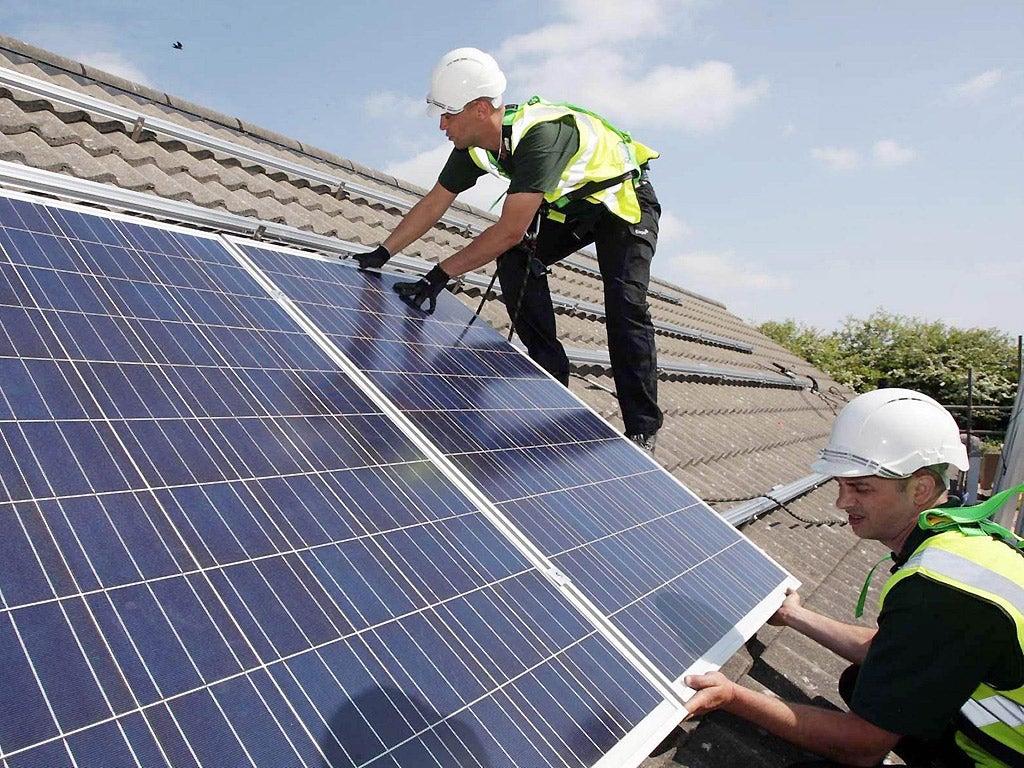Doubt over solar industry as subsidies are cut

Your support helps us to tell the story
From reproductive rights to climate change to Big Tech, The Independent is on the ground when the story is developing. Whether it's investigating the financials of Elon Musk's pro-Trump PAC or producing our latest documentary, 'The A Word', which shines a light on the American women fighting for reproductive rights, we know how important it is to parse out the facts from the messaging.
At such a critical moment in US history, we need reporters on the ground. Your donation allows us to keep sending journalists to speak to both sides of the story.
The Independent is trusted by Americans across the entire political spectrum. And unlike many other quality news outlets, we choose not to lock Americans out of our reporting and analysis with paywalls. We believe quality journalism should be available to everyone, paid for by those who can afford it.
Your support makes all the difference.The Government unveiled plans for further cuts to solar subsidies, sparking concerns over the future of the industry and thousands of jobs.
Energy Minister Greg Barker claimed the reforms to payments for small-scale solar would mean a bigger scheme that could deliver an "extraordinarily ambitious" 22GW of panels – the equivalent of 3.3 million installations for homes and businesses. He said the changes would mean the payments tracked the falling costs of solar technology, delivering value for money for consumers who pay for the scheme on energy bills and preventing another "bubble" in the industry. But campaigners said the proposals to cut subsidies further, announced as the Government said it was pressing ahead with plans to halve payments, would leave the solar industry "dead in a ditch", risking thousands of jobs.
Ministers have previously warned the falling costs of technology made the payments too generous, causing too rapid a take-up of solar panels.
As a result, the feed-in tariffs scheme, which pays householders, organisations and businesses for electricity from small-scale renewables, has spiralled over budget. The Department of Energy and Climate Change revealed the popularity of solar panels meant the £1bn budget for the current spending period had been blown, and £1.7bn was already committed to payments.
Mr Barker said the changes were about creating a scheme "for the many", which would deliver better value for consumers who pay for the subsidies on their bills and put solar on course to be a competitive alternative to fossil fuels.
Join our commenting forum
Join thought-provoking conversations, follow other Independent readers and see their replies
Comments